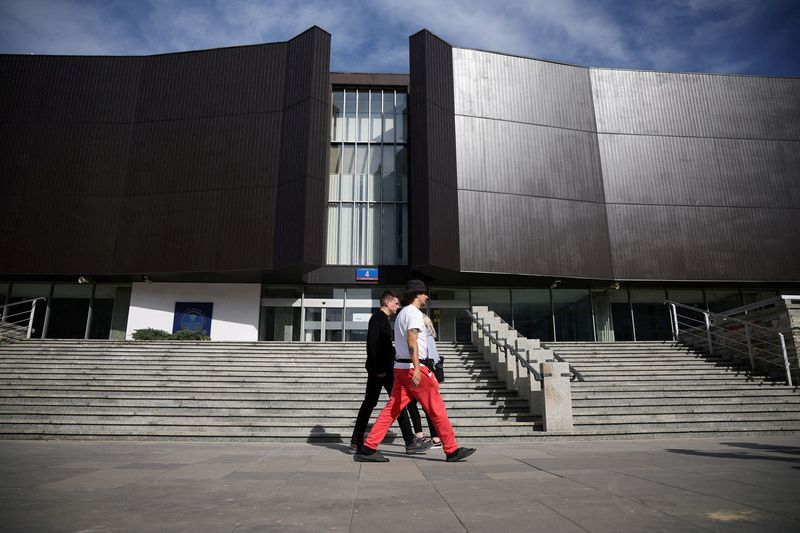GDANSK, Poland (Reuters) - Polish consumers say they are struggling to pay household bills and buy basic groceries as price rises have reached their steepest in more than a quarter of a century.
Inflation in Poland was 18.4% year on year in February, according to statistics office data released on Wednesday, the highest in 26 years, although economists have predicted it will mark the peak of the current cycle.
"Prices are quite high especially for food recently," said Patryk, 29, a product support specialist, who was heading to work in the northern city of Gdansk. "For example for tomatoes right now you have to pay about 20 zlotys ($4.49) per kilo. The normal price was about 12... This is not something I remember in my life."
A tight labour market means that emerging Europe's largest economy has continued to post double-digit wage growth, although pay has not kept up with inflation.
"Let's say I am quite lucky as I managed to get a pay rise... it balances out a little bit, but as I said you have to think about what you are buying and if you really need it right now," Patryk, who only gave his first name, said.
Across Europe prices have surged, in some cases to multi-decade highs, driven by the impact of the Ukraine war on energy markets, as well as supply chain disruption linked to the pandemic.
In Poland, prices for food and non-alcoholic beverages rose 24.0% year on year in February, while prices for housing, water, electricity and gas gained 22.7%.
Student Kinga, who also only gave her first name, said it was difficult to afford the bills.
"For example, electricity and if we want to warm our houses with gas, it's really a huge difference, it's really hard to pay," she said.
Maciej, a teacher and football coach, who was pushing a baby in a pram, said inflation made it harder to support his young family.

"I have two kids and when I must buy milk, Pampers or something like that, it's expensive," he said.
($1 = 4.4541 zlotys)